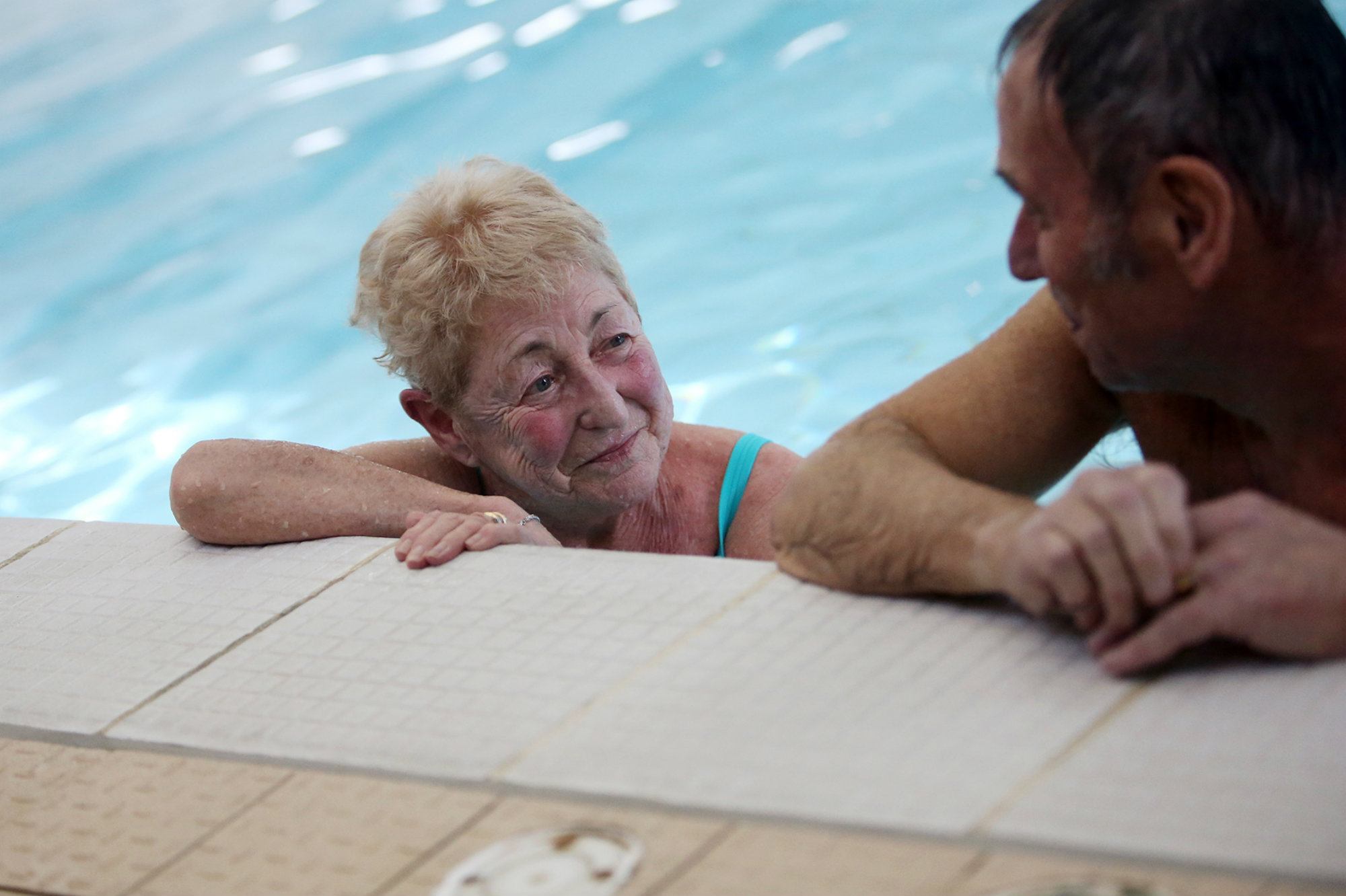The numbers are alarming: In 2015, an estimated 46.8 million people worldwide were living with dementia. The most common form, Alzheimer’s, affects 5.3 million Americans, and in just 10 years, the number of those aged 65 and older with the disease in the U.S. will hit 7.1 million, according to the Alzheimer’s Association, based in Chicago.
Faced with soaring statistics and no cure in sight, is there any hope for relief from the devastating disease?
In a word, yes. Though formal studies have not yet been published, anecdotal evidence suggests that time spent in the swimming pool – as well as doing water exercises – has a beneficial effect on persons living with dementia.
“These individuals have shown improved speech and language function, improved balance and agility, and improved cognitive and memory function, not only during the period of immersion but even persisting afterwards,” noted Dr. Bruce Becker in Water Immersion Works, a 2015 booklet showing the research-based health benefits of aquatic immersion and activity. He is director of the National Aquatics & Sports Medicine Institute, based in Spokane, Wash.
One group is already dedicated to enhancing the swimming experience of people living with dementia. The Amateur Swimming Association launched the Dementia Friendly Swimming Project in England last year, and it’s making a real difference in people’s lives.
The project provides guidance and training for facility operators, with a key component being the “Dementia Friendly Physical Environment Checklist.” It spells out changes – some small, some large – that a facility can implement to make the premises easier for persons with dementia to navigate. The checklist shows ways that facilities can provide spaces with signage, lighting, flooring and seating designed with such patrons in mind. Even something as simple as offering changing rooms that allow opposite-sex caregivers to enter and assist their companions means a lot to those who are loath to leave their companions to get changed alone.
Pools are encouraged to provide dementia-friendly swim sessions at particular times each week, and to train their staffs to be aware of, and understand, the needs of these patrons. ASA also works closely with the Alzheimer’s Society in the U.K. to deliver “Step Inside” training, which is tailored for leisure facilities. “At the moment, these sessions include low-intensity exercise classes, relaxation sessions (using lighting or music to soothe swimmers) and structured swimming sessions,” said Lara Lill, ASA head of health and well-being.
“The training is aimed at integrating those with dementia into mainstream sessions at a time when the pool is quieter.” She adds, “A pool full of strangers can be overwhelming for people living with dementia, which is why we wanted to create these dedicated sessions.”
When the project began, there were two facilities offering the pilot Dementia Friendly sessions. Now the group is working with nine leisure providers, delivering dementia-friendly swimming in 25 pools across the country. The aim, Lill said, is to offer the sessions in more than 100 pools and to train over 600 staff members to be more aware about how to support persons living with dementia.
“The collaborative nature of the project is very exciting,” Lill said. “It has brought together a range of local agencies, health organizations, charities and volunteers to develop this very important project. Dementia is fast becoming one of the biggest health challenges in the country, and the Dementia Friendly Swimming Project is a great example of nontraditional partners working together to achieve a great outcome.”
For more information, about the Dementia Friendly Swimming Project, visit the website.



